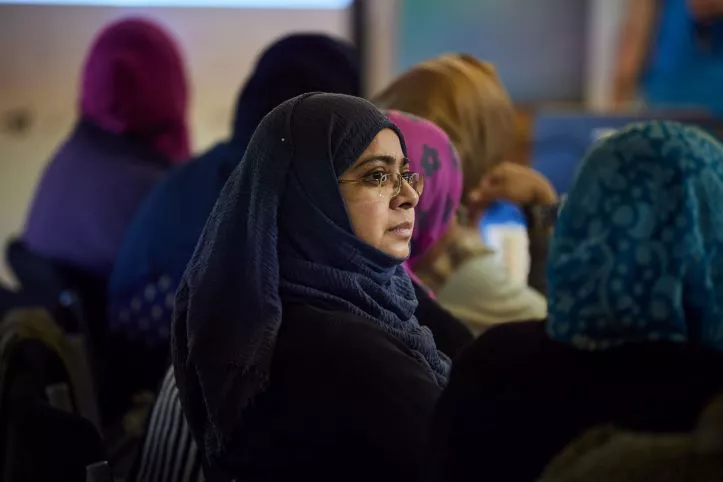
New research, which will be presented on Wednesday at the Diabetes UK Professional Conference 2024, has discovered a genetic variant almost exclusive to people with South Asian heritage that affects the accuracy of the HbA1c test.
The HbA1c test is crucial for diagnosing type 2 diabetes, monitoring people at high risk of type 2, and guiding diabetes treatment. The study suggests that South Asian people carrying the genetic variant may receive falsely lower HbA1c results, leading to delays in the diagnosis of type 2 diabetes.
The research was led by Dr Miriam Samuel at Queen Mary University London and her colleagues in the Genes and Health Research Team.
They studied genetic and health data from the Genes and Health study, which involves over 60,000 individuals of Bangladeshi or Pakistani ethnicity living in England, and the UK Biobank, involving 500,000 people of varied ethnicity living in the UK.
The findings
They identified a genetic variant that is found in 7.6% of people of South Asian heritage but is ultra rare in other ethnicities.
They found that South Asian people carrying this genetic variant could get HbA1c test results that underestimate their average blood sugar levels by up to 6 mmol/mol. HbA1c tests give an average of blood sugar levels over 2-3 months by measuring how much sugar is stuck to red blood cells. But this research suggests that the genetic variant is linked to changes in red blood cells, and this affects the test results.
The team found evidence that the variant could lead to delayed type 2 diabetes diagnosis. They analysed health records of South Asian people with the variant and saw those carrying it were diagnosed on average one to two years later than those without it.
Inaccurate HbA1c results might also mean that people with the genetic variant do not receive the best treatment to manage their blood sugar levels and reduce their risk of diabetes complications.
In England, it’s estimated that there are over 420,000 people from a South Asian background living with diabetes. And over 230,000 have a diagnosis of prediabetes, meaning they’re at high risk of developing type 2 diabetes.
With around 7.6% of South Asians carrying this variant, this suggests that the HbA1c test is underestimating blood sugar levels in around 32,000 South Asian people with diabetes and 17,500 with prediabetes in England alone. Thousands of prediabetes cases in South Asian people might have also been missed.
The findings suggest that other types of blood sugar tests, such as fasting glucose and oral glucose tolerance tests, might be needed in South Asian people who carry the variant.
If you’re concerned about the accuracy of your HbA1c test results, discuss alternatives with your healthcare team. They can check HbA1c results with additional tests to get a clearer picture of your blood sugar levels.
Diversity in research
The researchers said their findings drive home the importance of ethnic diversity in genetic research.
They added that further research is needed to explore whether inaccurate HbA1c results are contributing to the diabetes inequalities that we know are experienced by South Asian people living in the UK. These include an increased risk of type 2 diabetes and of developing serious diabetes complications.
Dr Miriam Samuel at Queen Mary University London, said:
“Many genetic variants linked to red blood cell conditions are ultra-rare amongst the Northern Europeans who have historically dominated genetic studies. We demonstrate one such variant that is carried by 7.6% of South Asians which could affect the accuracy of HbA1c and cause delays in diabetes diagnosis.
"Studies such as Genes & Health, focussing on populations who are underserved in genetic research, are vital to understand the different pathways that may contribute to diabetes inequalities in these communities.”
Dr Elizabeth Robertson, Diabetes UK's Director of Research said:
“This evidence showing that the accuracy of a common test to diagnose and monitor type 2 diabetes is linked to a person's ethnicity should be urgently investigated further. It's incredibly important that healthcare professionals are armed with a precise way to evaluate average blood sugar levels over extended periods. Without this, they are navigating in the dark and potentially at risk of overlooking cases of type 2 diabetes.
“Every individual at risk or with diabetes, regardless of their background, deserves equal access to effective diabetes care to live a healthy life and mitigate long-term diabetes complications.”
This important study is one of hundreds being shared at our Professional Conference this week. We’ll be bringing you more breaking research news direct from the conference over the coming days.
